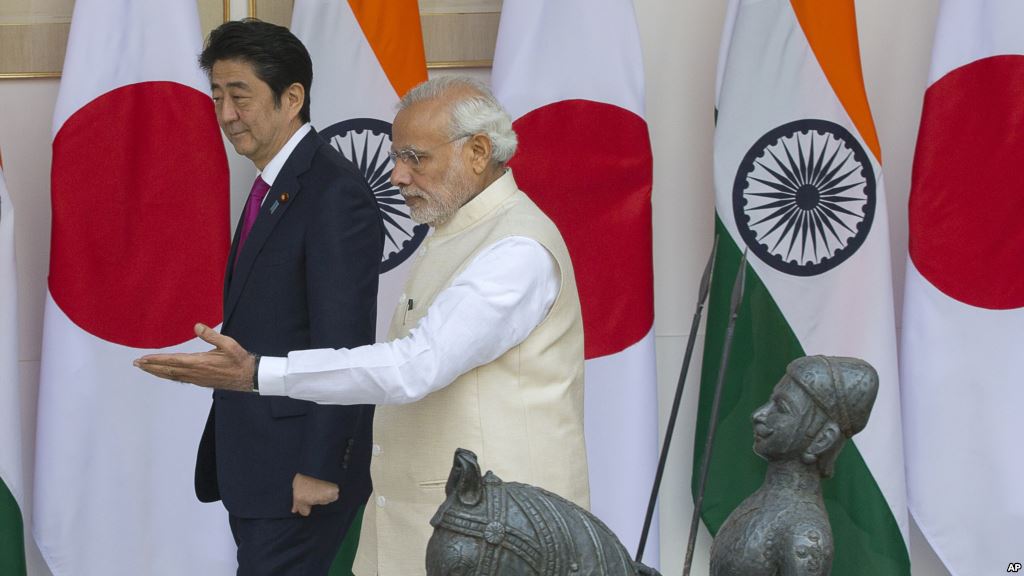India to get bullet train, inks Rs 98000-cr project with Japan
India and Japan on Saturday reached a substantive agreement on a civil nuclear deal in the annual summit between Prime Minister Narendra Modi and his Japanese counterpart Shinzo Abe here.
Referring to the agreement, Prime Minister Narendra Modi said, “No less historic is the decision to introduce high-speed rail on the Mumbai-Ahmedabad sector through Shinkansen known for speed, reliability and safety”. The train will cut travel time on the 505 km route by 5 hours.
The Indian PM has pledged to overhaul India’s ramshackle railways and other infrastructure as part of his ambitious economic reforms – an area praised by Abe earlier in the day.
With India assuring Japan that it will become a full member in the four worldwide nuclear export control regimes, Tokyo also moved forward and made a decision to ink a pact with New Delhi to cooperate on peaceful uses of nuclear energy after finalising the technical details.
While they agreed to work towards cooperation in civil-nuclear technology, the two leaders stopped short of signing an agreement. The Modi-Abe comfort level and the overall ambience of trust is reflected in Japan and India also signing an MoU on the civil nuclear deal, justifying Mr Modi’s description of it as more than just an agreement for commerce and clean energy.
Apparently, the Indian side gave assurances to Japan’s strong non-proliferation lobby to expedite the deal, but the Japanese preferred to play safe and sought time necessary for Prime Minister Abe to convince the Japanese parliament on the assurances given by India.
Japan is apparently looking for additional nonproliferation guarantees before it exports nuclear reactors to New Delhi, which is not a signatory to the Nuclear Nonproliferation Treaty.
While Japanese Foreign Ministry official Yasuhisa Kawamura said no aspect of India-Japan ties was aimed at a third party, Indian Foreign Secretary S. Jaishankar said the two prime ministers discussed the situation in the South China Sea.
Further, Modi said “Japan Plus” initiative that began past year in India as a policy experiment, is also doing well.
On the nuclear non-proliferation treaty (NPT) issue, he said India had put it behind with Japan’s help in 2008 itself when the nuclear suppliers group decided to make an exception for India.
Japan also welcomed India’s intensified engagement with export control regimes. It aims to promote direct investment of Japanese companies and trade from Japan to India, to support their business activities with counterparts in India.
Highlighting the improvement in economic indicators in both India and Japan, he said these were extremely encouraging, especially in the light of the global economic slowdown.
India will also extend visas on arrival to Japanese citizens from March 2016, including for business travellers.
Abe, who was dressed in a traditional Nehru jacket, took part in the holy rituals along with Prime Minister Modi amid chants of holy mantras, flanked by priests.
Speakers from Japan Against Nuclear spoke of the horrors of the Fukushima disaster and it continuing toxic fallout which is affecting not only Japan but much of the Pacific even five years after the Fukushima disaster.








